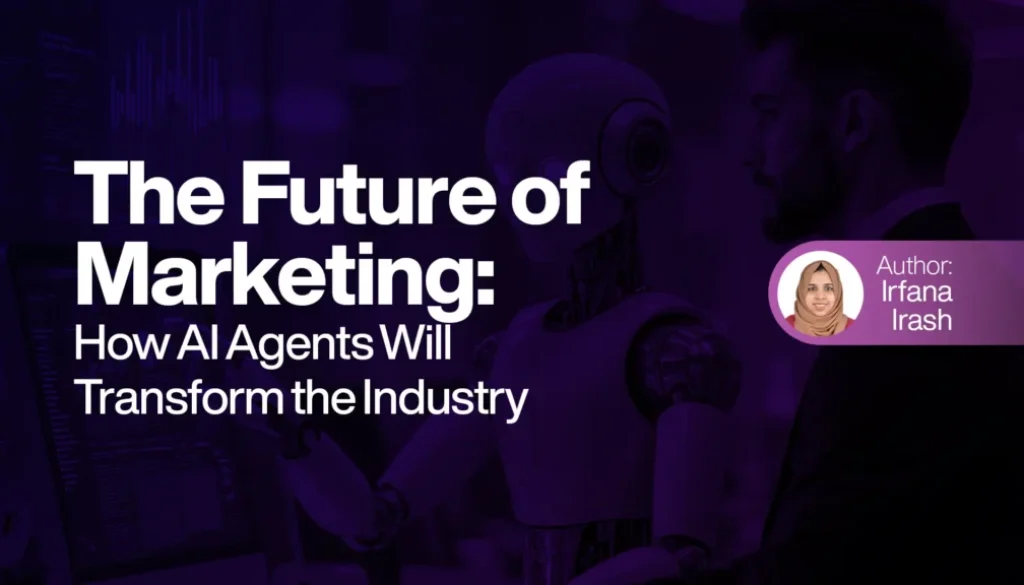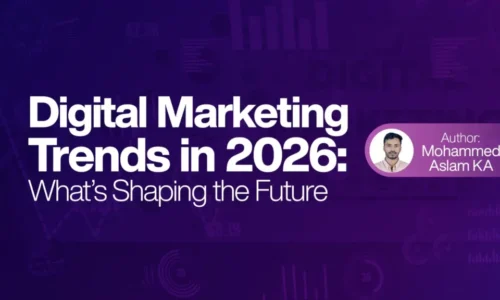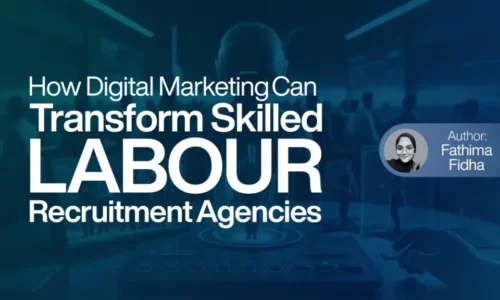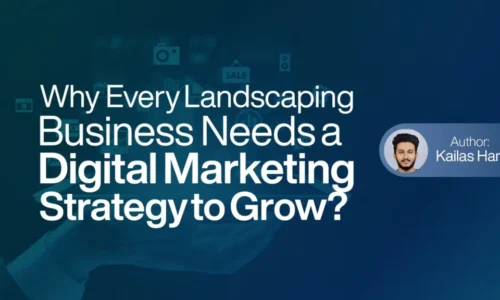The Future of Marketing: How AI Agents Will Transform the Industry
Imagine working with a digital assistant who never takes a break, learns at lightning speed, and remembers every insight from your past campaigns. This is no longer a futuristic fantasy. AI agents are here, offering marketers an unprecedented level of efficiency and precision.
Unlike traditional automation tools, these intelligent systems can make informed decisions, adapt to changing market conditions, and take on time-consuming tasks. In many ways, they act like an extra team member who can work across departments, provide quick reports, and even make suggestions you might not have thought of.
Rather than replacing human marketers, AI agents will become trusted collaborators enhancing speed, enabling deeper personalisation, and making it easier to scale marketing campaigns effectively. They are the bridge between the creative vision of marketing and the technical power of modern analytics, turning ideas into reality faster than ever before.
Table of Content
1. From Manual Work to Smart Assistance
If you have ever spent hours buried in spreadsheets or setting up campaigns, you know how much time repetitive tasks can steal. AI agents can take on the heavy lifting, analyzing data, segmenting audiences, and adjusting campaigns often in minutes. Imagine launching a campaign in the morning, and by lunchtime, the AI has already identified underperforming segments, suggested creative tweaks, and updated audience targeting. That is not replacing your role, it is giving you more space for brainstorming and innovation. Think of it like having a junior marketer who can instantly process large datasets and provide you with a ready-to-execute plan. This frees you to focus on campaign direction, storytelling, and testing creative ideas that require human judgment.
2. Personalization That Feels Human
Customers expect ads that speak to their needs, not just any ad. AI agents can read patterns in browsing history, purchase behavior, and even subtle engagement cues to deliver messages that feel tailored, not templated. Unlike old school automation, today’s AI agents adapt offers in real time, maintain your brand’s tone of voice, and respond dynamically to user behavior. With personalization, a quick glance becomes long-term loyalty. For example, if a customer browses a product category twice in a week, AI can trigger a personalized offer or content piece that feels timely and relevant increasing the chance of conversion.
3. Predictive Insights for Smarter Decisions
Most marketing is reactive, but what if you could see trends before they happen? AI agents can analyze years of performance data and market signals to forecast which campaigns have the highest probability of success, which leads are worth pursuing, and which channels will offer the best ROI next month. Imagine replacing your rearview mirror with a crystal ball backed by analytics. This means you can adjust your budget allocation in advance, prepare creatives for emerging trends, and avoid wasting resources on underperforming strategies. It shifts marketing from guesswork to data-driven foresight.
4. Managing Multiple Channels with Ease
Keeping track of Facebook, Instagram, LinkedIn, email, and more can be exhausting. AI agents act like central command centers, publishing content, monitoring results, and reallocating ad spend to the platforms that are performing best. Instead of juggling multiple dashboards, you can focus on the bigger picture, ensuring every touchpoint feels consistent and aligned with your brand vision. For instance, if Instagram is suddenly driving more engagement than expected, the AI can shift resources in real time without you manually updating campaign settings.
5. Creating Content at Scale
From crafting ad headlines to designing landing pages, content creation often slows down campaigns. AI agents can help you draft multiple ad variations for A/B testing, suggest design improvements based on user feedback, and optimize content for different audiences automatically. You still set the creative direction, but now, execution happens faster and at scale. This capability is particularly valuable for brands running seasonal or time-sensitive campaigns, where delays could mean missed opportunities. AI ensures you can move from concept to launch in days instead of weeks.
6. Always-On Customer Engagement
Your customers do not keep office hours, and neither do AI agents. Whether it is midnight or early morning, they can answer FAQs instantly, suggest relevant products, and follow up on inquiries in real time. Always being available means nothing goes unanswered and no lead falls through the cracks. In practice, this could mean capturing a lead from a late-night web visitor who might otherwise have moved on to a competitor. Over time, this round-the-clock support builds trust and positions your brand as reliable and responsive.
7. Ethical, Responsible AI Use
AI is powerful, but with power comes responsibility. Marketers need to protect customer data, prevent algorithmic bias, and be transparent when customers are interacting with AI. Trust is the currency of modern marketing, and AI should always be used to build it, not damage it. A responsible approach involves regular audits, clear data privacy policies, and ethical guidelines for AI usage. Brands that ignore this risk losing consumer confidence something no technology can replace.
8. The Marketer’s Role in the AI Era
In an AI-powered world, your role shifts from doing all the manual work to guiding the overall strategy. You will focus on defining campaign objectives, ensuring brand authenticity, and adding emotional intelligence where AI cannot. Marketers become directors, blending technology, creativity, and human connection into a seamless experience. This means knowing when to rely on AI’s speed and precision and when to step in with the human touch that builds relationships.
9. The Bottom Line
AI agents aren’t replacing the human side of marketing, they’re amplifying it. By taking over repetitive work, they give marketers the freedom to focus on creativity, strategy, and authentic connection. They turn raw data into deep audience understanding, enabling campaigns that feel personal, relevant, and timely at scale. The brands that adopt AI agents early won’t just keep pace, they’ll set the pace, delivering experiences so seamless and personalized that they redefine what customers expect. The real question isn’t if AI will transform marketing, it’s whether you’ll be among the leaders shaping that future, or watching from the sidelines.




